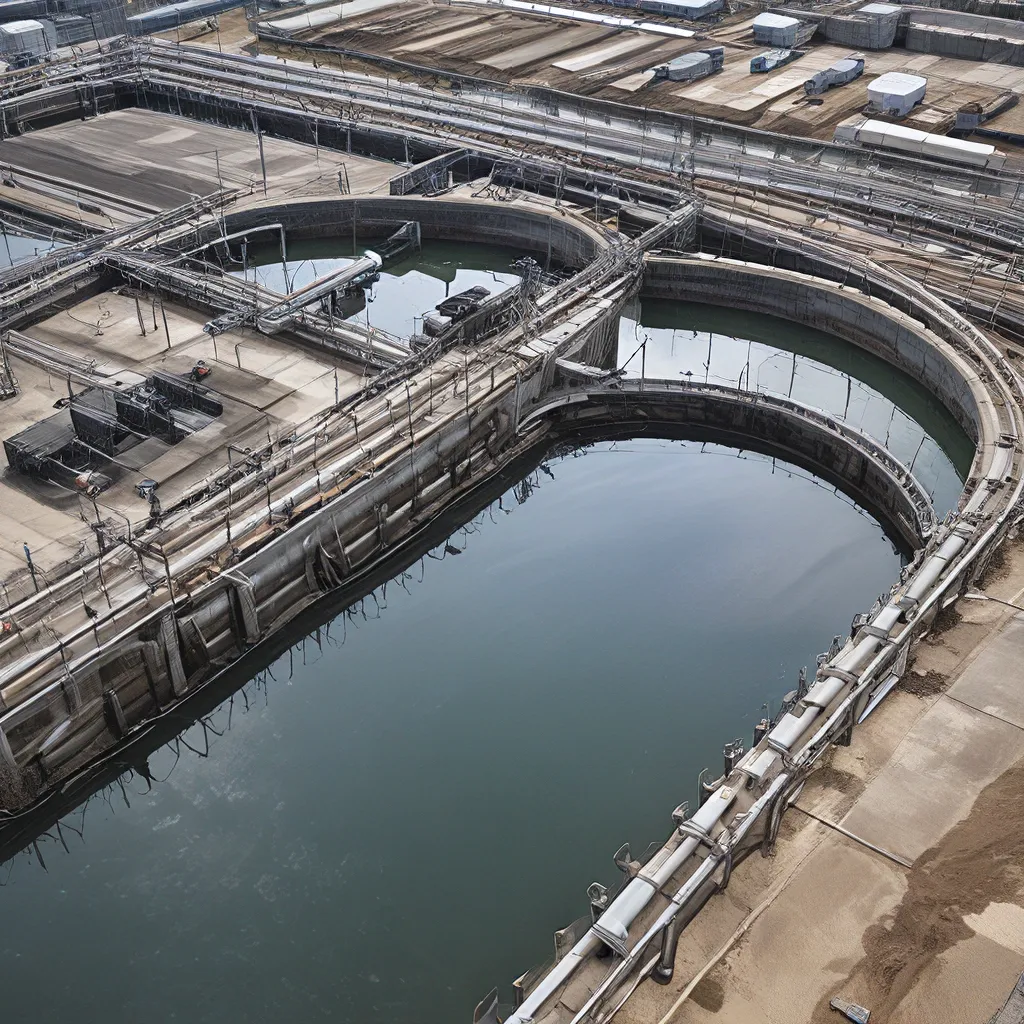
As the world increasingly grapples with the challenges of climate change and resource scarcity, the role of digital transformation in the water and wastewater industry has become more crucial than ever. In this article, I’ll delve into how cutting-edge technologies are revolutionizing the way we manage, monitor, and optimize our wastewater systems, paving the way for a more sustainable and efficient future.
Embracing the Digital Age in Wastewater Management
The past decade has witnessed a remarkable surge in the adoption of digital technologies across various industries, and the water sector is no exception. Utilities and municipalities around the globe are recognizing the immense potential of leveraging data-driven solutions to streamline their operations, enhance decision-making, and ultimately, provide better services to their communities.
One shining example of this digital transformation can be found in Indonesia, where local water companies, known as PDAMs, have started modernizing their operations through the implementation of innovative digital frameworks. By embracing technologies such as IoT-based sensors, real-time data analytics, and integrated command centers, these utilities are tackling some of their most pressing challenges, including the persistent problem of non-revenue water (NRW).
Tackling the Challenge of Non-Revenue Water
The national average of NRW in Indonesia stands at a staggering 33.24%, indicating that a significant portion of the water produced is lost or unaccounted for. This not only represents a substantial financial burden for water utilities but also poses a threat to the long-term sustainability of water resources.
To address this issue, digital technology has emerged as a game-changer. The deployment of IoT-based sensors in critical distribution networks and at the consumer level provides real-time data on water flow, pressure, and usage patterns. This granular information enables utilities to quickly identify and address anomalies, pinpointing the root causes of water losses and taking immediate corrective action.
Moreover, the integration of smart water meters at the customer end ensures accurate measurement of water consumption, allowing for more precise billing and a better understanding of the actual NRW rates. By leveraging these cutting-edge solutions, water companies can make more informed, data-driven decisions, ultimately reducing their financial losses and ensuring the sustainable management of water resources.
Integrating Comprehensive Water Management Solutions
The digital transformation in the water sector goes beyond simply addressing NRW. It encompasses a holistic approach to water management, integrating various components to create a Smart Water Grid Management (SWGM) system.
This advanced solution, as implemented by companies like Bima Sakti Alterra (BSA) in Indonesia, combines IoT-based sensors, real-time data analysis, and integrated command centers to provide a comprehensive view of the entire water distribution process. By monitoring water levels in reservoirs, pressure and flow in critical distribution networks, and customer-side consumption patterns, these systems can detect potential issues early on and enable proactive decision-making.
The benefits of such an integrated approach are multifaceted. Utility operators can quickly identify areas of concern, optimize water distribution, and ensure the continuity of water supply to customers. Managers can access real-time data dashboards to make more informed decisions, while policymakers can leverage the insights to formulate effective water management strategies.
Overcoming Challenges and Fostering Sustainable Solutions
While the adoption of digital technologies in the wastewater industry holds immense promise, it is not without its challenges. Unequal distribution of quality education and lack of investment capabilities are two significant hurdles that must be addressed to facilitate widespread digital transformation.
To overcome these obstacles, water utilities are increasingly partnering with experienced consultative partners who can guide them through the transition. These trusted advisors help identify the right technologies, tailor solutions to specific needs, and ensure a seamless integration within existing processes and organizational structures.
Moreover, the water industry’s strategic focus on sustainability is driving the development of innovative digital solutions that not only enhance operational efficiency but also contribute to reducing the sector’s environmental footprint. By leveraging technologies like smart pumps, leak detection sensors, and advanced analytics, water utilities can slash their greenhouse gas emissions and move closer to their net-zero targets.
Embracing the Future of Wastewater Monitoring
As we look to the future, the convergence of digital transformation and sustainable wastewater management holds the key to unlocking a more resilient and resource-efficient water landscape. By embracing cutting-edge technologies, water utilities can optimize their operations, enhance customer satisfaction, and contribute to the broader goal of environmental stewardship.
At Alpha Wastewater, we are at the forefront of this digital revolution, offering comprehensive solutions that harness the power of data and technology to revolutionize the way water and wastewater are managed. Through our partnerships with industry-leading experts and our commitment to innovation, we are empowering utilities to navigate the exciting journey of digital transformation, ensuring a more sustainable and resilient future for all.
So, as we continue to grapple with the challenges of water scarcity and environmental preservation, let us embrace the transformative potential of digital technologies and work together to build a water-secure tomorrow.
Conclusion: Embracing the Digital Future
The digital transformation in the wastewater industry is not just a trend – it is a critical step towards a more sustainable, efficient, and resilient future. By leveraging the power of data, IoT technologies, and integrated management systems, water utilities can optimize their operations, reduce water losses, and contribute to the broader goal of environmental preservation.
While the road ahead may present challenges, the rewards of embracing digital transformation are immense. Partnerships with experienced consultative partners, a strategic focus on sustainability, and a commitment to innovation will be key to unlocking the full potential of this digital revolution.
As we look to the future, I am excited to see how the water and wastewater industry continues to evolve, harnessing the power of technology to ensure the availability and quality of this precious resource for generations to come. By working together, we can create a water-secure tomorrow that benefits our communities, our environment, and our planet as a whole.